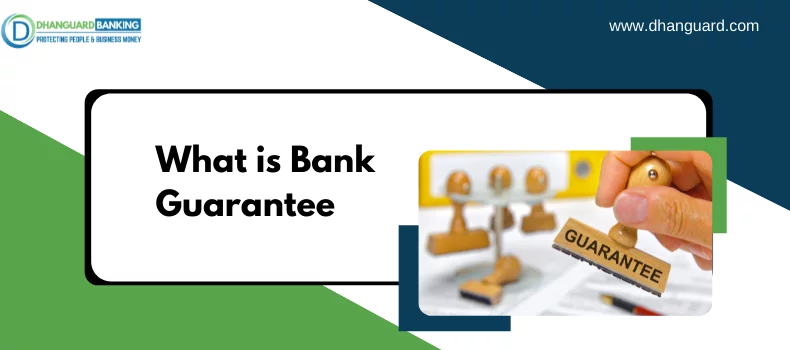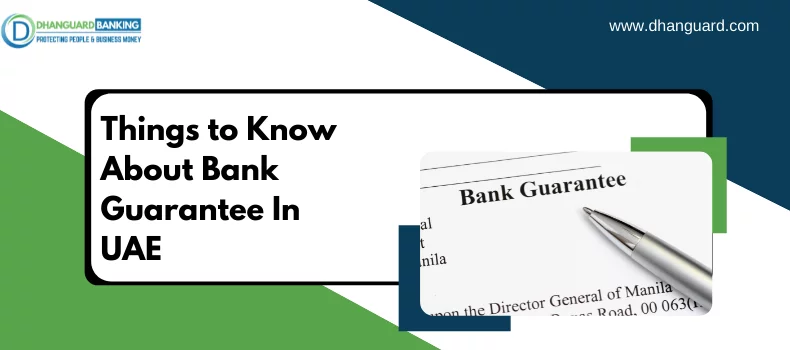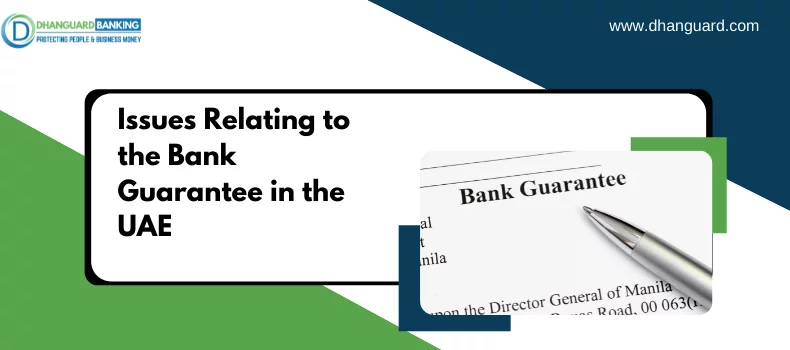In the dynamic business landscape of the United Arab Emirates (UAE), financial transactions often require guarantees to secure payments and contractual obligations. One common instrument used for this purpose is the guarantee cheque. Guarantee cheques play a vital role in business, assuring parties involved in various transactions. Due to its commercial nature, the bank guarantee in the UAE is governed by Civil Transaction Law No 5 of 1985, regardless of the capacity of the party to whom such an instrument is issued or the reason for it. The article by Civil Lawyers of Dubai discusses the meaning of a guaranteed cheque and the legal implications of such cheques when given in the UAE. However, it's essential to comprehend the legal implications associated with guarantee cheques, mainly when used against advance payments. In this blog, we'll delve into guarantee cheques, their legal significance, and the consequences of issuing them in the UAE.
What is a Guarantee Cheque?
A guarantee or security cheque is a post-dated cheque issued by one party to another, primarily as a security measure to fulfil a financial obligation, contract, or advance payment. The cheque essentially serves as a financial guarantee, ensuring that the beneficiary will receive the agreed-upon sum on a specific date, typically when a specific condition is met or due.
Quick overview about the Guarantee Cheque
The issuance of a bank guarantee creates a separate and independent obligation for the bank issuing such an instrument, as well as the guarantor and principal debtor. It is considered an independent liability issued by the guarantor to the creditor, also known as the beneficiary, by the principal debtor.
Issuing any transaction or underlying contract between the beneficiary and principal debtor will not affect the bank guarantee. Regardless of any understanding or agreement between any of the three parties, namely the guarantor, the principal debtor, or the beneficiary, or irrespective of the position of the principal debtor, the guarantor will be bound by the bank guarantee.
Legal Framework in the UAE
The UAE has stringent regulations to govern financial transactions involving guarantee cheques. The legal consequences of issuing guarantee cheques are clearly defined in the UAE's commercial and civil laws, including Federal Law No. 18 of 1993 concerning Commercial Transactions and Federal Law No. 5 of 1985 concerning Civil Transactions. The legal framework for various types of cheques in the UAE is as follows:
-
Post-Dated Cheques: In the UAE, post-dated cheques are widely used for multiple transactions and are generally accepted as legally binding instruments. When a guarantee cheque is issued, the issuer is bound by law to ensure that the cheque's date corresponds to when the payment or condition becomes due.
-
Criminal Liability: Issuing a guarantee cheque without sufficient funds to cover it can lead to criminal liability. If the cheque bounces due to insufficient funds or any other reason, the issuer may face penalties, including fines and imprisonment, as stipulated by the UAE's laws. Such penalties are designed to uphold financial integrity and protect the rights of the beneficiaries.
-
Bankruptcy or Insolvency: In cases where the issuer of the guarantee cheque is declared bankrupt or insolvent, the beneficiary may still have the legal right to enforce the cheque's payment, provided it was issued within the legally defined parameters.
-
Enforcement of Guarantee Cheques: If the beneficiary of the guarantee cheque fails to receive the payment per the agreed conditions, they can approach the UAE courts to enforce the cheque. The legal system in the UAE is equipped to handle such cases effectively and fairly.
-
Requirements for Enforcement: The UAE courts will enforce a guarantee cheque when the beneficiary can demonstrate that the cheque was issued as a guarantee for a legitimate obligation and that the issuer failed to meet that obligation.
-
Crossing of Cheques: In some cases, parties may choose to "cross" the guarantee cheque, limiting its negotiability and ensuring it can only be deposited into a specific bank account. This offers an additional layer of security for the beneficiary.
Guarantee Cheques Against Advance Payment
The legal consequences can be even more significant when guarantee cheques are issued against advance payments. It is crucial to understand the following points:
-
Advance Payment Agreement: Any agreement for an advance payment secured by a guarantee cheque should be meticulously documented and legally sound. This agreement should specify the conditions for the advance, the date for repayment, and the consequences of non-compliance.
-
Legal Recourse: If the issuer of the guarantee cheque fails to meet the agreed-upon conditions in the advance payment agreement, the beneficiary can seek legal recourse to enforce the cheque. The UAE courts will carefully examine the terms of the agreement to determine the legality of the claim.
-
Proving Non-Compliance: The burden of proof lies with the beneficiary, who must demonstrate that the issuer did not meet the conditions specified in the advance payment agreement. This emphasizes the importance of thorough and transparent documentation in such transactions.
Validity of the Bank Guarantee
Under UAE law, a bank guarantee with no amount is not legal. It is expressly stated that a bank guarantee must be of a certain amount.

Time Limit for Bank Guarantee
According to UAE law, the time limit for a bank guarantee is not required. If, on the other hand, the time duration is present in the instrument, it will automatically expire when the period expires. Also, under CTL article 418, the guarantor's obligation may be waived if the device is not renewed before the guarantee expires or the beneficiary does not make a payment request within the prescribed time frame. Furthermore, it is implied that the general law of limitation will apply to the bank in the absence of the time factor. However, because such a limitation period is also missing, it is assumed to be ten years from the date of issuance of such an instrument.
Assignment of the Instrument
According to Article 416, the instrument will only be valid in the hands of a third party if the beneficiary assigns it to the third party with the guarantor's prior consent. In addition to the requirement of support, it is specified that such authorisation is in writing. Furthermore, such a right can be granted to the beneficiary by the guarantor when signing the bank guarantee by making it a part of the guarantee. Moreover, the principle of assigning the bank guarantee to a third party states that once the beneficiary has assigned the instrument to the third party, the third party will become a new beneficiary and will replace the beneficiary and take the place of the old ones. This means that the beneficiary will have to give up all rights and claims relating to the instrument to the third party, and the guarantor will be liable only to the third party and will have to fulfil their obligations to the third party upon their request.
Invocation of Bank Guarantee
The beneficiary is the only party who can invoke the bank guarantee, and based on this invocation, the bank is obligated to pay the beneficiary regardless of the principal debtor's default, act, or omission in this regard. This instrument is intended to be free of conditions. Still, a condition requires a beneficiary to act on the condition in a specific way or submit any documents to the bank. In that case, the bank will only fulfil the payment request once and if such an act is performed or a submission is made to the bank. Such conditions are said to be stated in the bank guarantee itself, and it is the guarantor's responsibility to demonstrate that such a condition is not met. The Court order is the only exception that allows the bank to refuse to pay the beneficiary on the successful invocation of the instrument; otherwise, the bank must make all payments related to the request.
Payment
Upon invocation of the bank guarantee, the guarantor must make all payments due about the contract within the period specified in the guarantee. Thus, it is the responsibility of all three parties, namely the guarantor, the beneficiary, and the principal debtor, to establish a time limit for the guarantor to pay upon the beneficiary's request.
Injunction
In some exceptional cases, the court may levy an annexation on the bank guarantee amount with the guarantor. Article 416 states that only severe and unusual grounds can elicit an interim injunction against the guarantor on the principal debtor's appeal and are subject to the court's decision. The Court of Cessation upheld this provision in an appeal no. 247/2007, ruling that the court will not prevent the bank from paying the beneficiary at the request of the principal debtor unless there is a compelling and exceptional reason to do so on the part of the principal debtor.
Failure to make payment
If the guarantor fails to pay against the bank guarantee, the beneficiary may file an application in court against the guarantor. In addition, owing to the independent obligations of both the beneficiary and the guarantor, there is no need for the beneficiary to file a case against the principal debtor before filing a lawsuit against the guarantor.
Conclusion
Guarantee cheques play a pivotal role in securing financial transactions in the UAE. However, it is vital to be aware of the legal consequences associated with these instruments, mainly when they are used against advance payments. Parties involved in such transactions must clearly understand the legal framework and the potential repercussions of non-compliance. By adhering to the UAE's legal regulations and ensuring comprehensive documentation, businesses and individuals can navigate these transactions with confidence and transparency. Dhanguard may be able to tackle your issues relating to bank guarantees in the UAE. Dhanguard offers customized solutions such as performance, advance payment, tender, warranty, financial guarantees, and, among other things, upon request.
DhanGuard: All-in-One Solution for Business Setup in Dubai, UAE
DhanGuard is your ultimate one-stop solution for all your business needs. Whether you’re planning to set up a new company or expand your existing business in the UAE, we’ve got you covered with our comprehensive range of services. From Company Formation in UAE and Business Bank Account in UAE services to managing your financial and legal compliance, we provide everything you need under one roof.
Our services include:
- Company Formation in UAE and Dubai
- Opening a Business Bank Account in UAE and Dubai with a 99% success rate
- VAT & Corporate Tax Compliance
- Accounting, Bookkeeping, and Auditing Services
- Trade License Renewal
- Golden Visa Assistance
Let DhanGuard make your journey of Business Setup in Dubai seamless and hassle-free!










